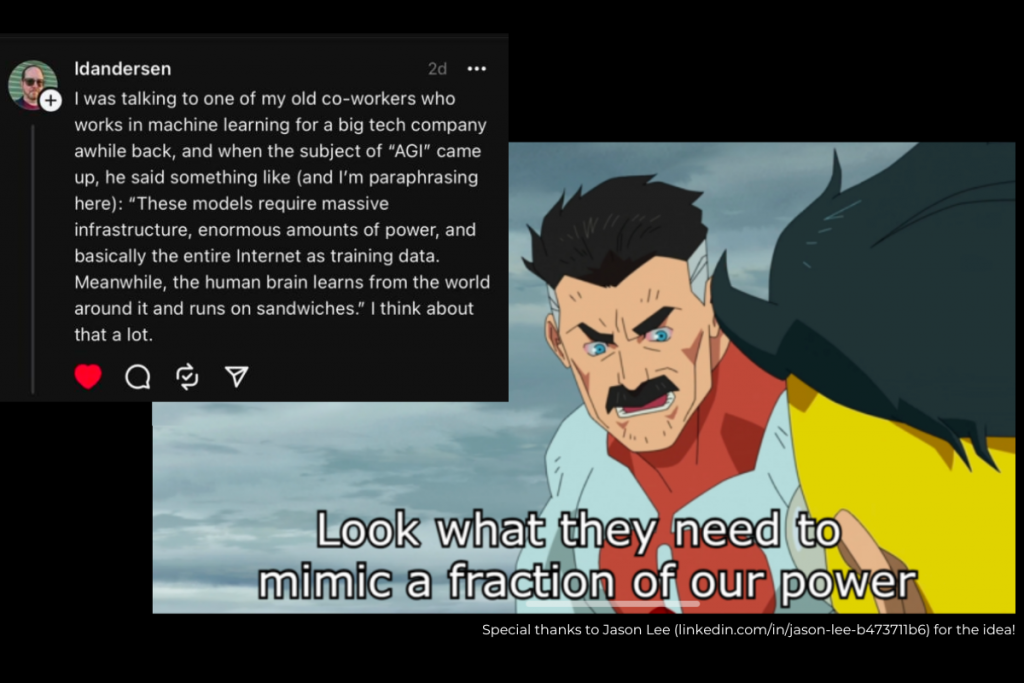One of my newsletter readers was asking me about the difference between “AGI” and “AI”.
In one issue of my newsletter last year, I put it this way:
Artificial general intelligence (AGI) is the term for, well, “actual” artificial intelligence: systems that can respond intelligently to a variety of situations, as humans do. We’re already using the term “AI” to refer to text generation, image generation, etc., so we need another term for actual intelligence. OpenAI’s stated mission is to develop AGI responsibly.
AGI is more or less what we used to mean by “artificial intelligence”. In tech reporting, “AI” is generally used for Artificial Narrow Intelligence (ANI), i.e., systems that do one task well thanks to techniques like machine learning; examples include recommendation systems (Spotify, Netflix), self-driving systems, voice recognition, machine translation. AGI would be a big step beyond these: for example, a system that could make coffee, drive to work, analyze data, solve math problems, write ad copy, and add cover sheets to TPS reports.

However, AGI isn’t well-defined, which has let assorted AI companies claim that their particular generative AIs are “nascent AGI” or “a step on the road to AGI”. Microsoft/OpenAI said that GPT-4 was “a nascent example of artificial general intelligence (AGI)” in early 2023; then everybody got excited in late 2023 because (non-released) model Q* was reported to actually be able to reason logically; then, in early 2024, OpenAI said that video-generating tool Sora was a step toward AGI because it could “understand” the physical world.
It seems to me that calling new models “a step toward AGI” has become part of the hype cycle. In Sora’s case, the videos it generates strongly suggest that what it understands isn’t the physical world, but how pixels change over time. I’m not saying that Sora isn’t impressive or a big deal! It’s an amazingly cool piece of software. It’s just not true that it seems to understand the physical world, and it’s too bad that OpenAI felt the need to pitch it as an AGI-enabling world model instead of as a solid advance in video generation.